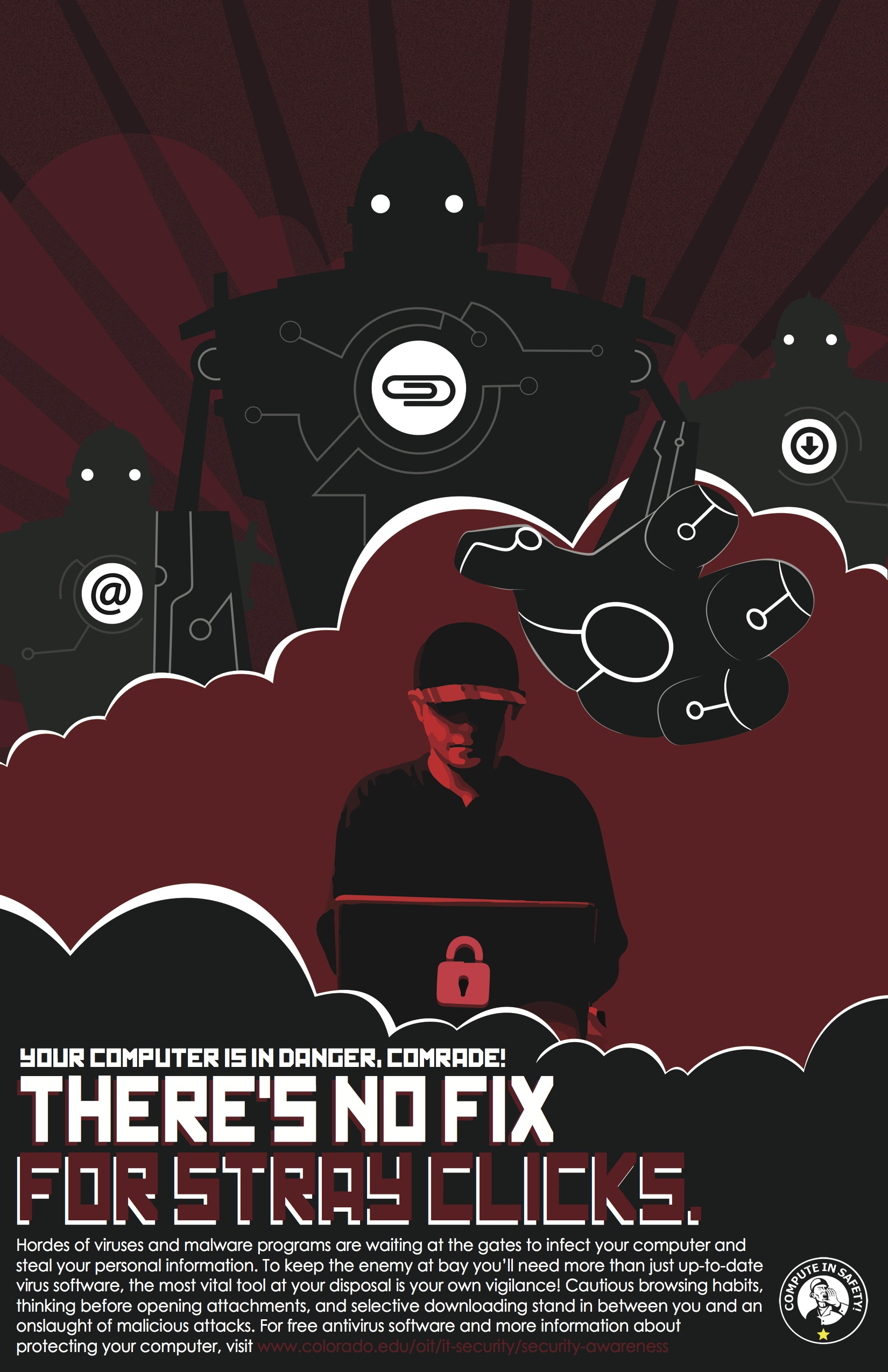
Your Computer is at Risk!
Antivirus software is one of the most important tools for safe-guarding your computer, vital information, and personal data from the onslaught of viruses and worms. It protects you from malicious users gaining access to and running harmful software on your computer, compromising your system and sharing private information. The Malware Remediation and Detection Program (MRDP) allows the campus to collectively identify malware for faster response and remediation. Faster response to individuals impacted by malware improves the safety of our network by addressing the issue faster, before it spreads.
The University of Colorado offers a variety of free security software options that can be found here.
Tips On Avoiding Viruses
Do not open any files attached to an email from an unknown, suspicious or untrustworthy source.
Do not open any files attached to an email unless you know what it is, even if it appears to come from a friend or someone you know. Some viruses can replicate themselves and spread through email. Confirm that your contact really sent an attachment.
Do not open any files attached to an email if the subject line is questionable or unexpected.
Delete chain emails and junk email. Do not forward or reply to any to them. These types of email are considered spam - unsolicited, intrusive messages that clog up the inboxes and networks.
Do not download any files from strangers.
Exercise caution when downloading files from the Internet. Ensure that the source is a legitimate and reputable one. Verify that an anti-virus program checks the files on the download site.
Update your anti-virus software regularly. McAfee security software like McAfee Total Protection update automatically and continuously via the Internet.
Back up your files on a regular basis. If a virus destroys your files, at least you can replace them with your back-up copy. You should store your backup copy in a separate location from your work files, one that is preferably not on your computer.
When in doubt, always err on the side of caution and do not open, download, or execute any files or email attachments. Not executing is the more important of these caveats. Check with your product vendors for updates for your operating system, web browser, and email. One example is the security site section of Microsoft located at http://www.microsoft.com/security.
Need Help?
 |
 |
 |
| UCCS Help Desk | CU Denver & Anschutz Help Desk | CU Boulder Help Desk |
|
719.225.3536 |
303.724.4357 |
303.735.4357 |




